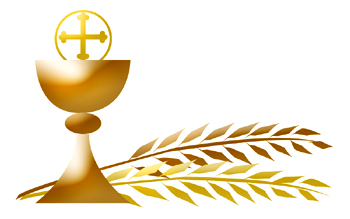 Q. How should I dress for Mass?
Q. How should I dress for Mass?
A. Out of respect for your fellow parishioners, please dress modestly and appropriately for the Lord’s Banquet. Our clothing and style of dress should not call attention to ourselves, but should reflect a healthy respect and reverence for others and for ourselves.
Q. Are we still supposed to fast for one hour before receiving Communion?
A. Yes. Those who wish to receive Holy Communion are to abstain for at least one hour before Holy Communion from all food and drink with the sole exception of water and medicine. The elderly, the sick, and those who care for them may receive Holy Communion even if they have eaten something within the preceding hour.
Q. Why do we fast?
A. We fast because it helps us to prepare for and appreciate the sacredness of such a great gift: the Holy Eucharist. Fasting reminds us of just what we are doing: receiving the very Body and Blood of Christ. Fasting reminds us that we must prepare ourselves spiritually so that we might truly hunger for the Lord, who is the Bread of Life.
Q. What about gum or candy?
A. Chewing gum at Mass is certainly not in the spirit of the communion fast. We should never come to Holy Communion with gum or candy in our mouth. In fact, we should refrain from chewing gum or eating candy whenever we are in church, not just before Communion. Catholics do not chew gum at Mass.
Q. How should we receive Holy Communion?
A. After the person ahead of us has received Communion and stepped aside, we should offer a simple bow of reverence with our head and then step forward. We may receive the consecrated host either in our hands or directly on the tongue. If we receive in the hands we should take care that they are clean (as a sign of reverence) and place one hand over the other and raise them up high, forming a throne with our hands to receive the Body of Christ. As the priest or minister places the host in our hands and says “The Body of Christ” we should respond loudly and clearly “Amen.” The “Amen” is an expression of our faith—that we believe what the Church teaches about the Holy Eucharist. The “Amen” also expresses our willingness to follow Christ and to imitate Him.
Q. Can I take the host directly from the priest or communion minister before it is placed in my hand?
A. No. The Eucharist is a gift and gifts are received, not taken. In fact, the Holy Eucharist is God’s great gift to us, and like all gifts, it is something that we receive with gratitude and respect, not something that we reach out and take or grab.
